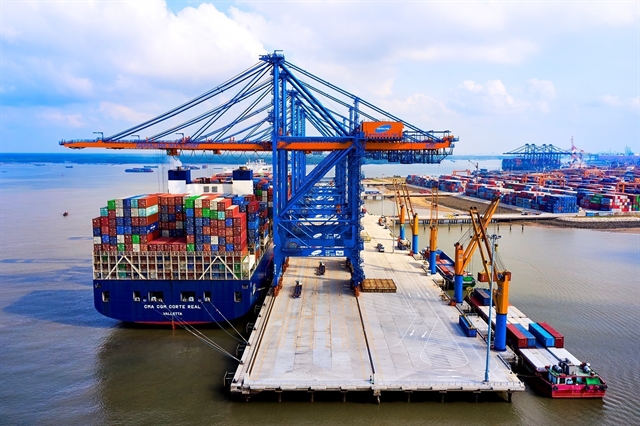Viet Nam's economic growth continued to face challenges which were seen in a slowdown in industrial production and declining exports due to weak external demand and global uncertainties.

Viet Nam's economic growth continued to face challenges which were seen in a slowdown in industrial production and declining exports due to weak external demand and global uncertainties, the World Bank’s June edition on Vietnam Macro Monitoring showed.
The industrial production index (IIP) registered a meagre 0.1 per cent year-on-year increase in May, down from 0.5 per cent in April. In contrast, retail sales remained robust, expanding by 11.5 per cent year-on-year, mirroring the growth rate seen in April.
While sales of goods improving from 9.7 per cent year-on-year in April to 10.9 per cent in May, sales of services experienced a significant decline, dropping from 19.2 per cent year-on-year in April to 7.6 per cent in May, reflecting the impact of prevailing uncertainties on consumer spending.
In terms of trade, exports of goods faced a significant setback, declining by 6 per cent compared to the previous year, primarily due to weak external demand. Simultaneously, imports fell by 18.4 per cent year-on-year in May, reflecting the prolonged slowdown in demand for foreign inputs necessary for production and exports.
“If global financial conditions tighten more, external demand may weaken further,” the report said.
Amidst these economic challenges, the consumer price index (CPI) inflation showed a decline for the fourth consecutive month. In May, the CPI softened from 2.8 per cent year-on-year in April to 2.4 per cent year-on-year in May, driven by falling global energy prices and a decrease in domestic transport costs. However, core inflation remained elevated at 4.5 per cent year-on-year in May, marginally lower than April's rate of 4.6 per cent year-on-year.
Foreign direct investment (FDI) commitments also slowed down last month due to prevailing global uncertainties, weighing on investor confidence. However, FDI disbursement remained stable at US$1.8 billion, comparable to the same period the previous year.
To stimulate the economy, the State Bank of Vietnam (SBV) took measures to ease monetary policies. The refinancing interest rate was lowered from 5.5 per cent to 5 per cent, and the overnight lending facility rate was reduced from 6 per cent to 5.5 per cent. This marks the third consecutive rate cut since March 2023.
“However, authorities must remain vigilant to potential pressures on capital flows and the exchange rate resulting from diverging monetary policies between Viet Nam and other countries,” World Bank’s analysts suggested.
Credit growth continued to decelerate, dropping from 9.2 per cent year-on-year in April 2023 to 9 per cent year-on-year in May, reflecting weakening demand.
Moreover, the monthly budget balance recorded a substantial deficit of approximately $2 billion in May. This deficit can be attributed to a decrease in revenue collection by 35.8 per cent year-on-year, primarily due to one-off effects from high post-COVID revenue in 2022 related to land sales, property transactions, and value-added tax collections. On the other hand, public expenditure increased by 27.8 per cent year-on-year in May.
The challenges faced by the Vietnamese economy necessitated careful monitoring and proactive measures, the report said, adding potential energy shortages in the Northern region, which began in late May, would require urgent attention to avoid further impact on the economy.
Furthermore, it said accelerating public investment disbursement, particularly for National Target Programmes, would bolster aggregate demand and foster short-term economic growth. Additionally, prioritising investments in digital and green technologies, infrastructure development and human capital would promote sustainable long-term development.
As manufacturing exports had slowed and employment in manufacturing had been affected, it would be important to quickly identify and support impacted workers and families through the social protection system. Streamlining administrative procedures and removing regulatory hurdles would help promote business activities and investments needed for economic growth, it added. — VNS
- Tags
- Viet Nam's growth





